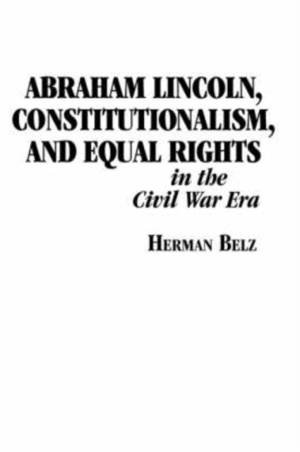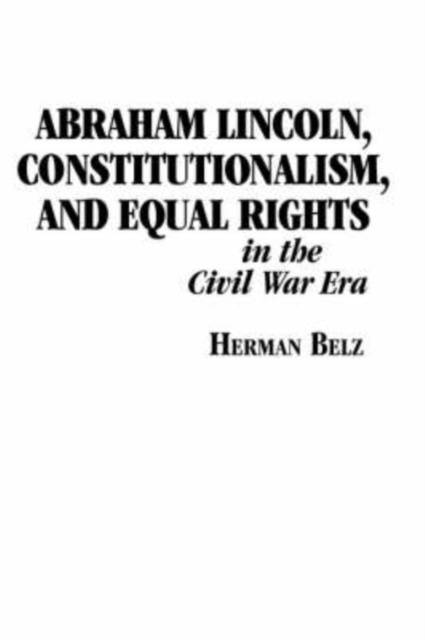
- Retrait gratuit dans votre magasin Club
- 7.000.000 titres dans notre catalogue
- Payer en toute sécurité
- Toujours un magasin près de chez vous
- Retrait gratuit dans votre magasin Club
- 7.000.0000 titres dans notre catalogue
- Payer en toute sécurité
- Toujours un magasin près de chez vous
Abraham Lincoln, Constitutionalism, and Equal Rights in the Civil War Era
Herman BelzDescription
This striking portrait of Abraham Lincoln found in this book is drawn entirely from the writing of his contemporaries and extends from his political beginnings in Springfield to his assassination. It reveals a more severely beleaguered, less godlike, and finally a richer Lincoln than has come through many of the biographies of Lincoln written at a distance after his death. To those who are familiar only with the various "retouched" versions of Lincoln's life, Abraham Lincoln: A Press Portrait will be a welcome--if sometimes surprising--addition to the literature surrounding the man who is perhaps the central figure in all of American history.
The brutality, indeed that malignancy of some of the treatment Lincoln received at the hands of the press may well shock those readers who believe the second half of the twentieth century has a monopoly on the journalism of insult, outrage, and indignation. That Lincoln acted with the calm and clarity he did under the barrage of such attacks can only enhance his stature as one of the great political leaders of any nation at any time.Spécifications
Parties prenantes
- Auteur(s) :
- Editeur:
Contenu
- Nombre de pages :
- 265
- Langue:
- Anglais
- Collection :
Caractéristiques
- EAN:
- 9780823217694
- Date de parution :
- 01-12-97
- Format:
- Livre broché
- Format numérique:
- Trade paperback (VS)
- Dimensions :
- 152 mm x 230 mm
- Poids :
- 408 g

Les avis
Nous publions uniquement les avis qui respectent les conditions requises. Consultez nos conditions pour les avis.






